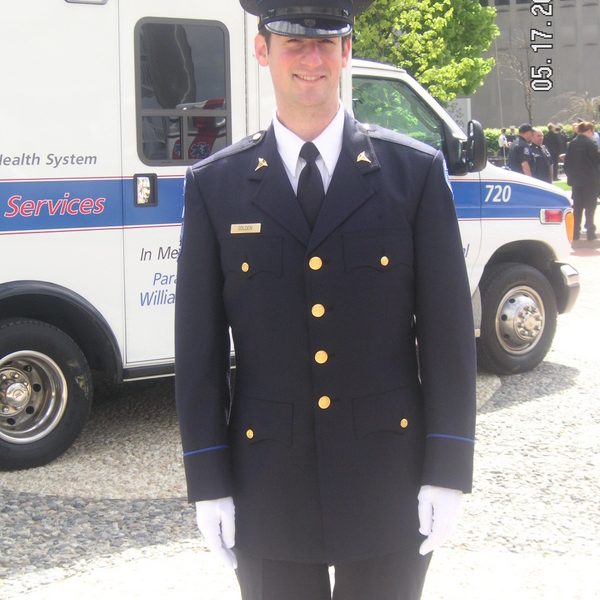A few years later, Avi traveled to Israel for two years to initiate studies in biology. While there, he also furthered his passion in emergency medicine by becoming certified as an Emergency Medical Technician (EMT). This choice was to dramatically shape his life later.
Avi came back to the US to complete his Bachelor of Science in Biology at Towson University, in Maryland. By the time he graduated in 1998, he was well on his way to pursuing a career and a life that he loved. In the years that followed, he garnered even more credentials as an EMT.
This allowed him to work as an emergency medical technician and paramedic in many different and exciting capacities. These included that of a Critical Care Paramedic, a Certified Flight Paramedic, a Rescue Technician, and in the allied roles of firefighter, hazmat (hazardous materials) operations and weapons of mass destruction technician. Life was good.
In early June 2007, at 33 years of age, Avi was admitted to Columbia Hospital, in New York, for surgery on an mitral valve prolapse (MVP) repair that was discovered near the aortic valve in his heart. Like many people who go in the hospital for serious, but seemingly routine, surgery, Avi thought he’d be out and recovering in short order.
However, that was not to be. During the surgery, Avi experienced a stroke on the left side of his brain, leaving him with right-sided paralysis, and profound aphasia, which proceeded to wreak havoc with his life.
Avi remained in Columbia Hospital for two months and then was moved to a rehab hospital in the North Shore – Long Island Jewish Health System – for two more months of intensive in-patient rehabilitation. By early October, he was discharged, and began outpatient therapy at home (which he still receives for his arm and leg).
During his stroke rehabilitation, Avi received “traditional” physical, occupational and speech therapies, but he also utilized a rich mix of non-traditional therapies that included acupuncture, massage, tai chi, yoga, constraint therapy, water therapy, computer games and special speech software. Avi also tried using a Neuromove™ device on his right side.
Avi still has balance problems, and weakness on the right side of his body, but it’s his Expressive Aphasia that frustrates and confounds him more than any of his other post-stroke residuals. Avi can understand what people are saying to him and he can still read quite well.
However, he continues to have a lot of trouble speaking and writing, both of these being reflect problems with expressing himself. This can be devastating for any friendly and outgoing person, let alone a certified paramedic who needs to communicate accurately and effectively to do his job.
Avi refuses to let aphasia get in his way. He still works (and volunteers his time) as a paramedic and, more importantly, he’s embarked on a new mission of “aphasia advocacy,” educating others about aphasia and how it impacts a stroke survivor’s day-to-day life.

